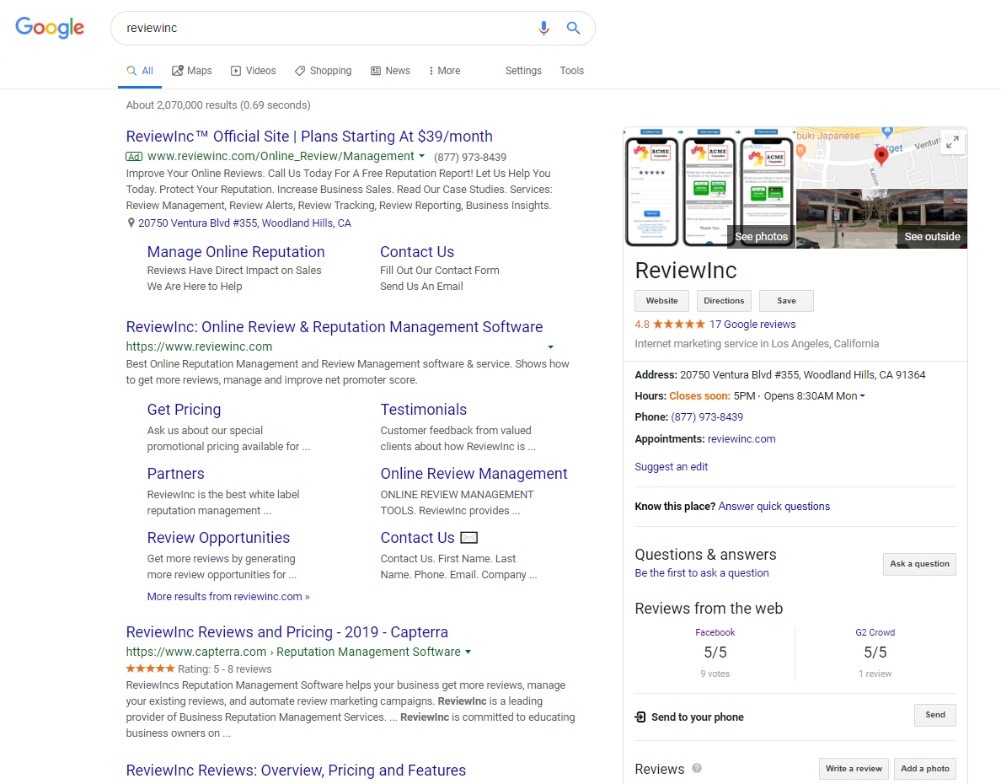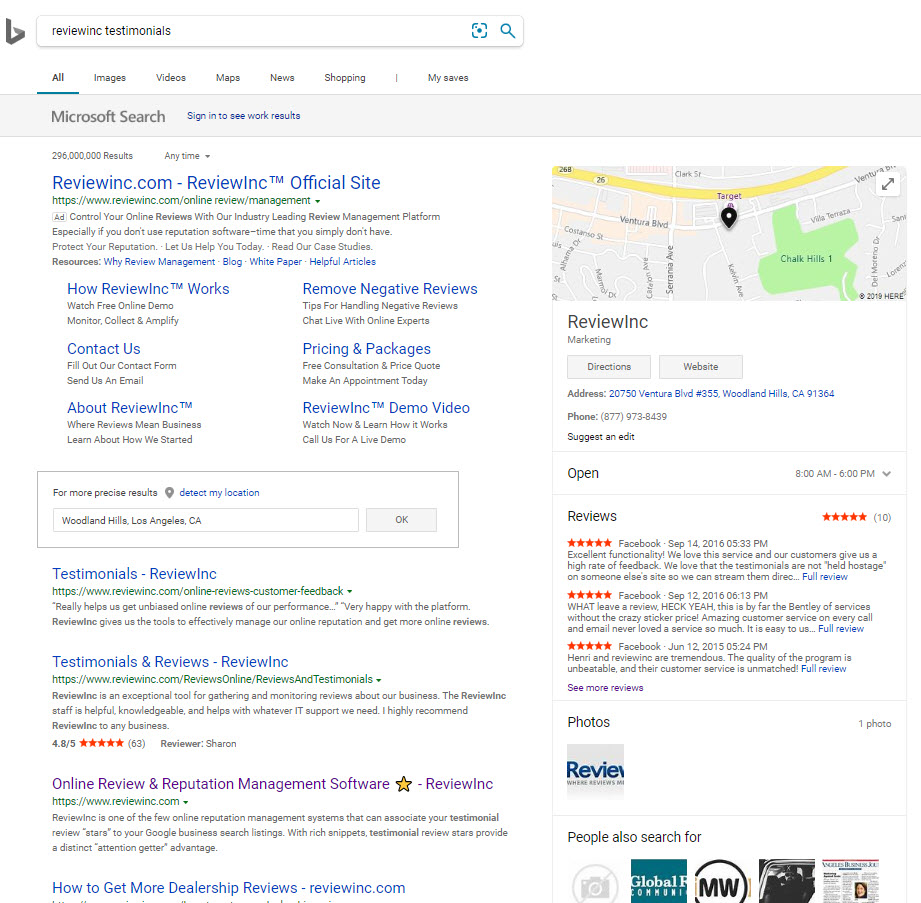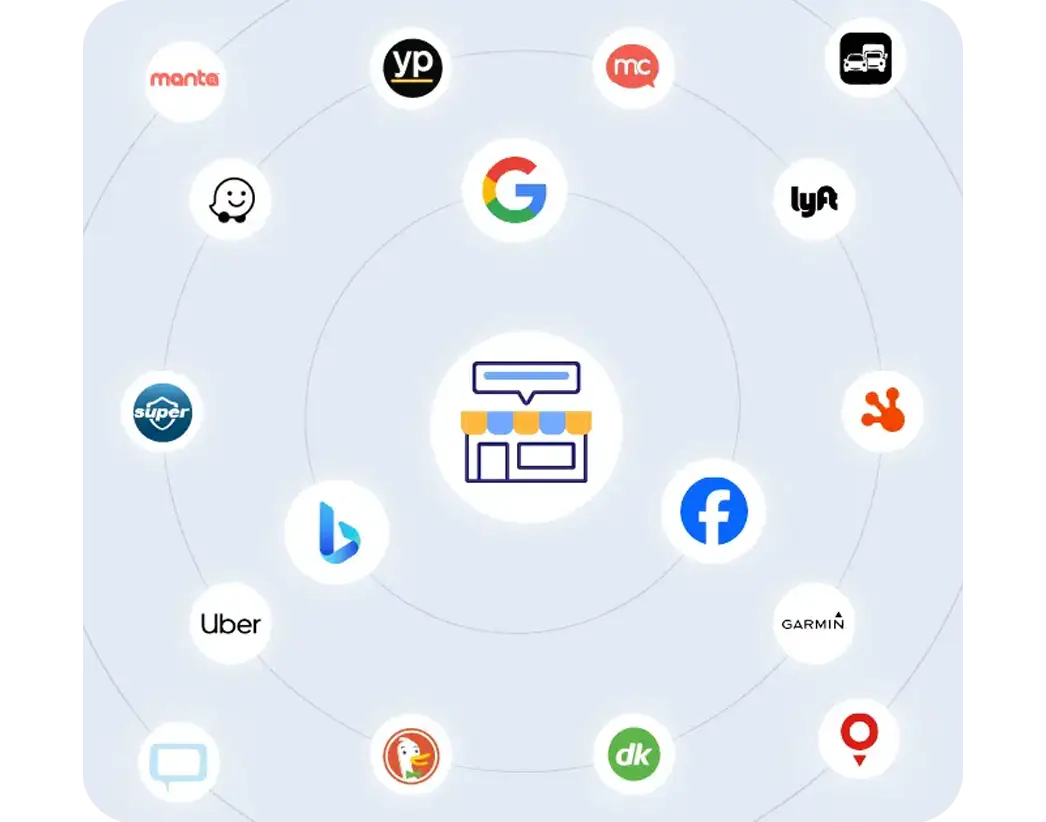 Most businesses see Google as useful for driving relevant traffic to their website. Google announced a few weeks ago via their Webmaster Central blog that they will no longer be including star ratings in search results for local businesses or organizations in an effort to demote “self-serving” reviews as rich snippets. While this may be frustrating for businesses that use the reviews to attract traffic to their website, it is not a total loss, as this information still shows up in Bing search results. According to a recent study, Bing is seeing more traffic in recent months.
Most businesses see Google as useful for driving relevant traffic to their website. Google announced a few weeks ago via their Webmaster Central blog that they will no longer be including star ratings in search results for local businesses or organizations in an effort to demote “self-serving” reviews as rich snippets. While this may be frustrating for businesses that use the reviews to attract traffic to their website, it is not a total loss, as this information still shows up in Bing search results. According to a recent study, Bing is seeing more traffic in recent months.
As part of “rich snippets”, Google allowed websites to markup content that would appear in search results, such as 5 stars, if applicable. This information is called “structured data,” and follows standards set by Schema.org, which sets standards for the type of information, such as a product for sale, recipe, or event. “Rich snippets” such as stars and information show up when the data has been marked up as “structured data.”
Certain types of reviews are now considered “self-serving” and will no longer appear as part of “rich snippets” in search results. Specifically, reviews marked with LocalBusiness and Organization schema will be affected since Google views that they are more beneficial to the company than the consumer.


How to Deal
Overall, ReviewInc would still recommend marking up your reviews with structured data as rich snippets are still a great way to attract more traffic to your website from Google. However, it is more important than ever to ask customers to review your business on the most popular review sites, as stars from social networks or review sites such as Facebook or TripAdvisor still show up. Google believes these sites are more credible than a business website since they do not have a vested interest in local businesses.
We also recommend writing detailed meta descriptions to refer to the reviews or testimonials on your website so they can still show up in search results. We wanted to provide some advice on writing meta descriptions when creating a web page, along with Google’s public advice. It is important to include a meta description because it helps drive traffic and improves a page’s performance in search. If you write one correctly, it can become part of the rich snippet that shows up at the top of the page and increase click-through rates. Here are some general rules for writing good meta descriptions:
- Write an original one for every web page on your site.
- Write between 135 and 160 characters.
- Include the page’s keyword within the description
- Include value the page offers, such as a call-to-action.
ReviewInc can help grow the number of online reviews about your business and display them on your website. Visit our home page and chat with a live agent today to see how!








